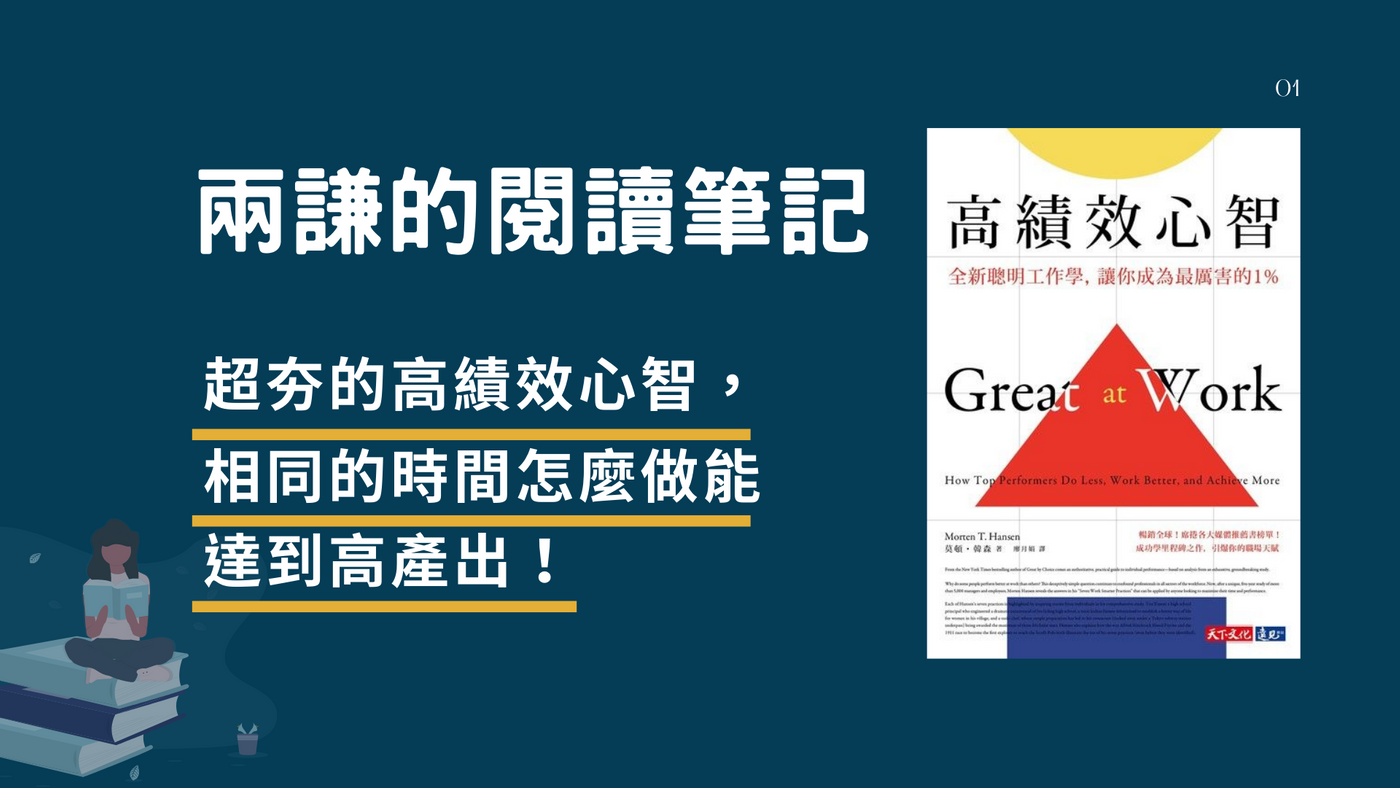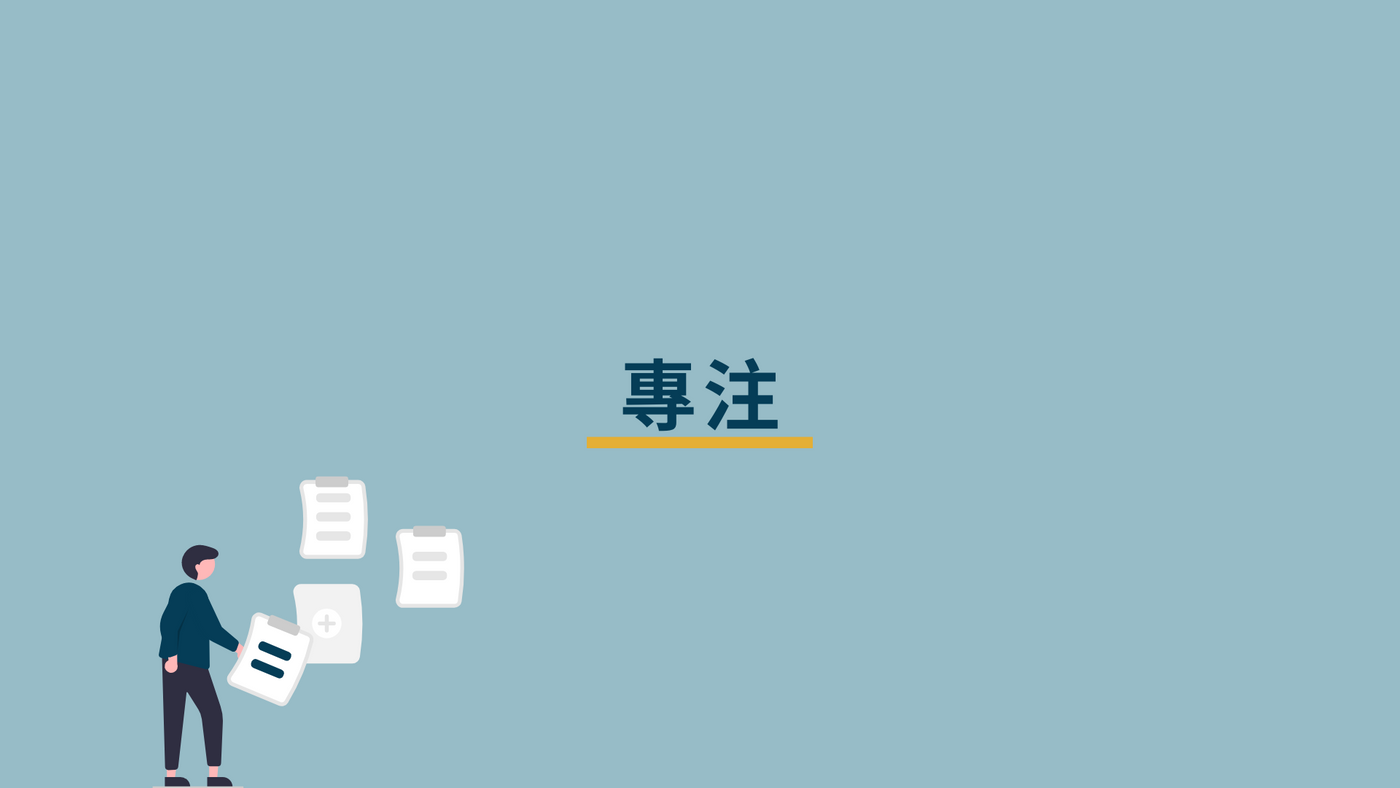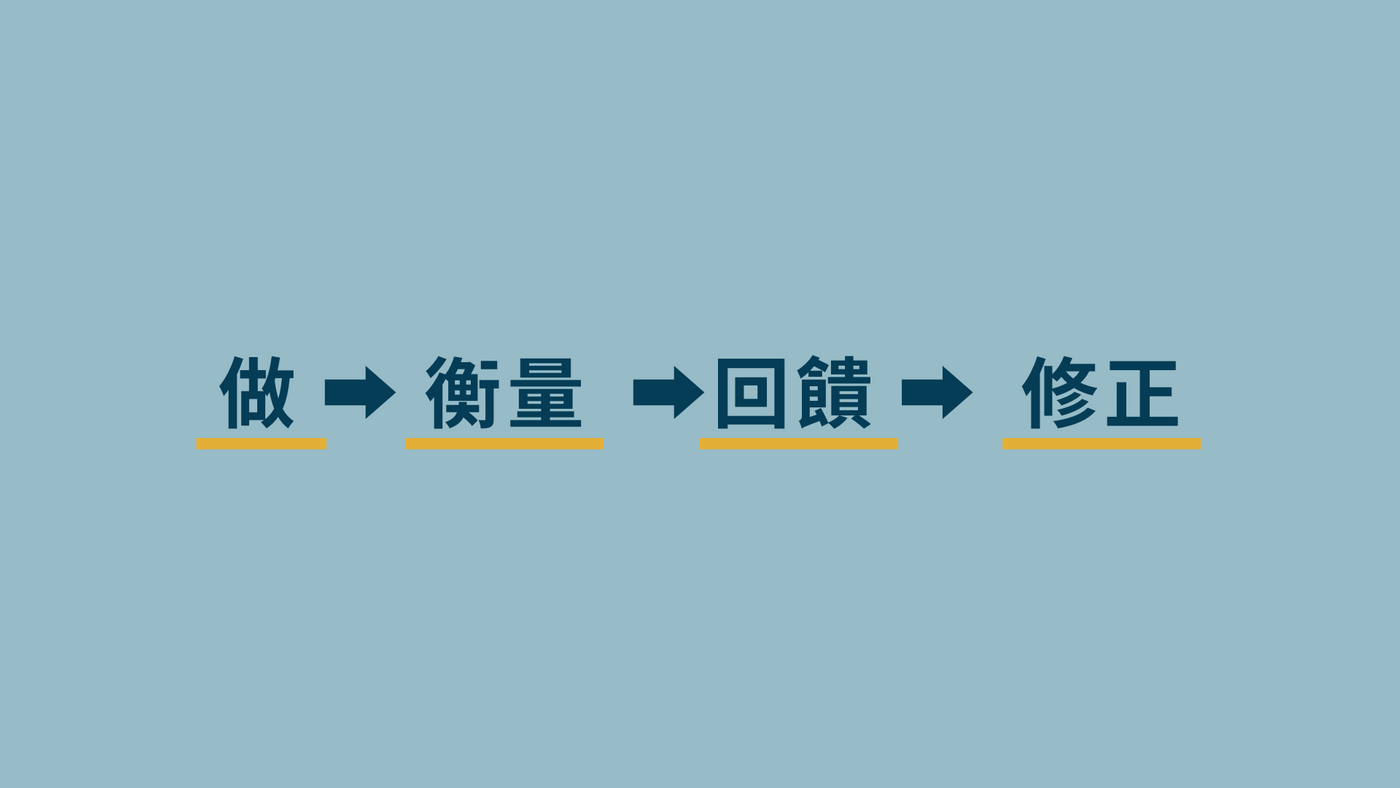[Liangqian's reading notes] Super compact high-performance mind, how to achieve high output in the same time!
Hello everyone! I am Liang Qian!
Today, I want to think about the book "High-Performance Mind".
Written by Morten T. Hansen.

Before I start, I want to talk about why I want to read this book, and what does it bring me?
I think I am not an efficient person, I move slower than others, sometimes I spend a lot of time in order to achieve the ideal perfection, but this often brings a lot of pressure to myself, and I often fall into confusion. Why do we work hard, but the result is Unsatisfactory.
The author mentioned this question at the beginning, why he spends more time than others working overtime and working for the company, but in contrast, another colleague with similar qualifications can get off work on time every day, and there are more high output.
So the author has since set out to find out how to work smarter, and that's why he came up with this book, "The High-Performing Mind."
Recommended Level: ✔ ✔ ✔ ✔ ✔
Extensive content: ✔ ✔ ✔ ✔
(Most of the latter half use work as an example. If you have not fully entered the workplace, it may be difficult to understand.)
Suitable for ethnic groups: office workers / slash youth / entrepreneurs / self-media people... Anyone who wants to increase output and improve efficiency is quite suitable!
【Double focus】

More choices are not always good, focus on one thing, gamble, but choose the best.
The more you try to do, the less you actually get done.
We have limited time, and we have to know how to make trade-offs.
"Do the most important things, don't do everything, spend the most time doing the things that last forever."
Q: What is the most important to you?
【Choice】

Must know the choice → take out the razor
For example, only one briefing is left, but one contains the essence; similar to minimalism, less is more, when we focus on one thing, just do the best thing, it will definitely improve you quality of work.
That is to say, it is often mentioned in time management, only do three things a day, just pick the three most important things to do.
Here is an example from "Eat the frog first", eat the most important and largest frog, and then eat the small frog when you have enough energy, otherwise once you get used to eating the small frog first (simple, easy things), Often leads to inertial procrastination and avoidance of difficult tasks; so, eat the big frog first!
【better】

Many people know how to distinguish the importance of things, but they will not repeatedly think about how to do better!
We can't just complete a task, but now and later,
There are reviews and reviews to find ways to do better.
【Redesign work】
1. Ask stupid questions and break out of stereotypes
2. Goal-oriented to value-oriented
Focus on the value, then move toward the goal.
Goals (intrinsic metrics) vs Values (beneficial to others)
Try asking yourself "Is it worth it?"
Of course, if you're not sure if it's worth it, it's also a good idea to ask someone else!
(But also remember, don't let irrelevant people control your thoughts, some people give good advice,
Some people will throw cold water on you, and it is also very important to know the difference between the two! )
【Create a learning loop】
1. Precise practice
For example in the book, the distance between the golf ball and the club should be accurate to the size (how far apart...)
2. Specific improvements
The question is not how to do it better, but a more detailed question.
For example, when I ask what needs to be improved during the meeting, most of them cannot get a response.
Must be specific! For example, the target group for this event is the elderly. Does the store ordering bento have a lighter choice? They can guide you in a specific direction, so that everyone can learn from it and express different opinions.
(Several keywords and steps are provided here)

Do ➡ New method and question measurement ➡ Evaluate question result feedback ➡ Get suggested corrections ➡ Improve / ask next question
Step1: Make time every day
Step2: A skill is divided into multiple micro-actions
Step3: Review the results of micro-actions
Step4: Get feedback as soon as possible
Step5: Use difficulties to hone your abilities
Step6: Beyond the stagnation point
【A method that combines passion and a sense of mission】
Starting point (creating value) → midfield (adding interests and finding personal meaning) → top (driving others to achieve goals)
Replenish:
Below is the list of excerpts, and those who are interested are welcome to come and read!
Be the top 1%
- double focus
- redesign work
- learning loop
- Combining passion and a sense of purpose
Work efficiently with anyone
- Persuasion requires skill and perseverance
- Can argue and unite
- Master the essentials of collaboration
The work logic of the new era
- The higher the performance at work, the more choices in life
- The mind is right, there is nothing that can't be done
- Largest study of job success
Seven things to work smarter:
- double focus
- redesign work
- Create a learning loop
- have strong intrinsic motivation
- good at exerting influence
- persuade people
- high value
Last but not least, thank you to everyone who read the article!
I'm Liang Qian, see you next time! Bye bye 😊~
Further reading:
【Daily Exercise Book】Change Your Life, Say Goodbye with Sofa Potatoes
[Rensen Mantoubao Series] Don't read! What are you doing? 100-Day Documentary on Suspension
About Me — IG 🔎 Liang Qian RUTH:
https://www.instagram.com/ruth_draw.dsgn/?hl=zh-tw
(Photo/image source: Liangqian RUTH)
Like my work? Don't forget to support and clap, let me know that you are with me on the road of creation. Keep this enthusiasm together!

- Author
- More